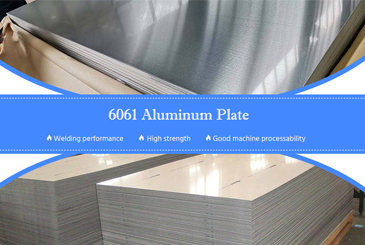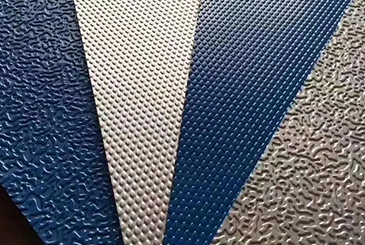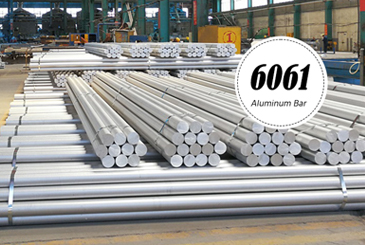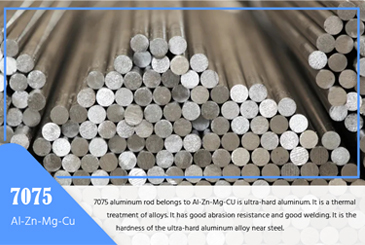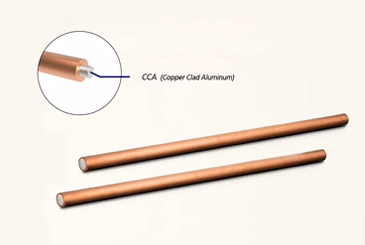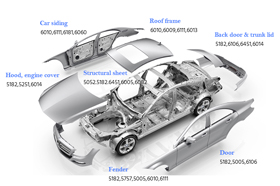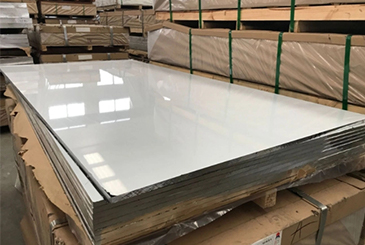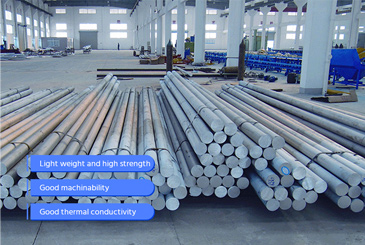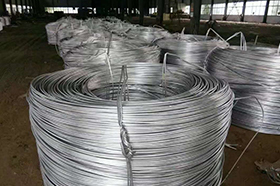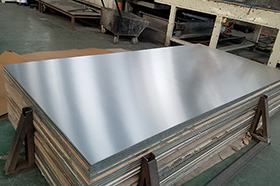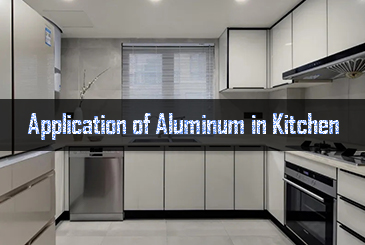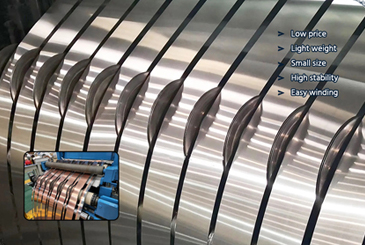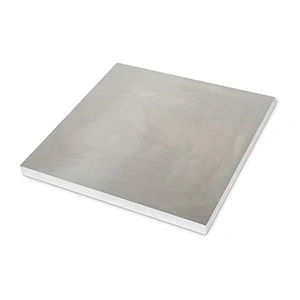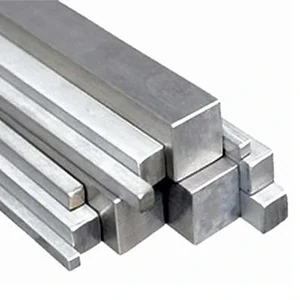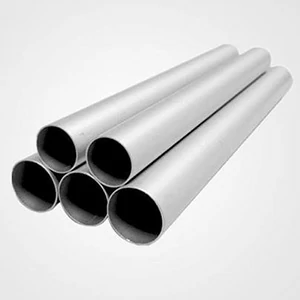7075 Aluminum Alloy, also known as 7075 Aircraft Aluminum, is ahigh-performance aluminum alloy primarily composed of zinc (7075 composition). It offerssteel-like strength (7075 tensile strength) while maintaining the lightweight benefits ofaluminum. It is widely used in aerospace, motorsports, and premium sports equipment.
Instant QuoteAs a professional 7075 aluminum alloy supplier, Chalco offers a wide range of productspecifications and tempers. Feel free to contact our expert team for inquiries or pricing!
Stock Size Range of 7075 Aluminum
Can't find what you're looking for? Contact our purchasing team.
Instant QuoteFeatures of 7075 Aluminum
7075 aluminum alloy is renowned for its outstanding strength-to-weight ratio, making it idealfor aerospace, racing, and military equipment.
- Yield strength up to 465 MPa, tensile strength up to 540 MPa—far exceeding common aluminumgrades like 6061, and even comparable to some steels.
- Through proper heat treatment (e.g., 7075-T6, 7075-T651), it delivers high strength alongwith enhanced oxidation and corrosion resistance.
- While its higher copper content may raise corrosion concerns, cladding or coatingeffectively addresses this, ensuring long-term performance in harsh environments.
- Whether you're building aircraft structures, racing components, or defense systems, we offera wide range of 7075 aluminum options to meet your specific needs.
Product Categories of 7075 Aluminum Supplied by Chalco
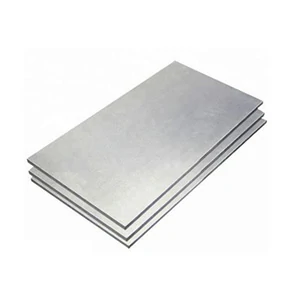 7075 aluminum sheet
7075 aluminum sheet Type: Bare, Alclad
Temper: O, T6, T651, T73, T7351
Standards:EN 485-2, ASTM B209, AMS-QQ-A-250/12, AMS 4044, AMS 4045, AMS 4049, AMS 4078
Applications:Aircraft skin, high-end racing components
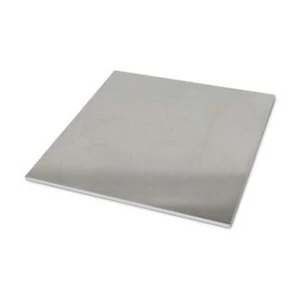 7075 aluminum plate
7075 aluminum plate Temper:O, T6, T651, T73, T7351
Standards:EN 485-2, ASTM B209, AMS-QQ-A-250/12, AMS 4044, AMS 4045, AMS 4049, AMS 4078
Applications: Aerospace structural parts, mold making, military armor components
Featured: 7075 Ultra wide aluminum plate, 7075 mold aluminum plate
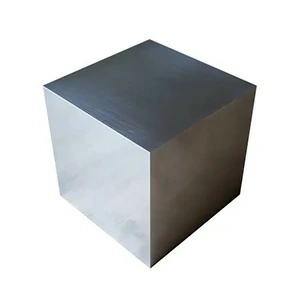 7075 aluminum block
7075 aluminum block Temper:O, T6, T651, T73, T7351
Standards:EN 485-2, ASTM B209, AMS-QQ-A-250/12, AMS 4045, AMS 4078
Applications: Precision CNC parts, aerospace tooling and molds
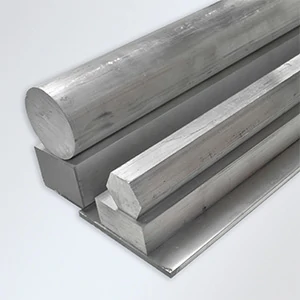 7075 aluminum bar
7075 aluminum bar Processing:Extruded, Cold finish, Forged
Temper:Round bar, Square bar, Rectangular bar, Hexagon bar, Half round rod
Temper:F, T6, T651, T6511, T73, T7351, T73511
Standards:EN 754, EN 755, ASTM B221, ASTM B211, AMS-QQ-A-250/9, AMS 4122, AMS 4123, AMS4124, AMS 4167, AMS 4169
Applications:Aircraft parts, bicycle components, precision instruments
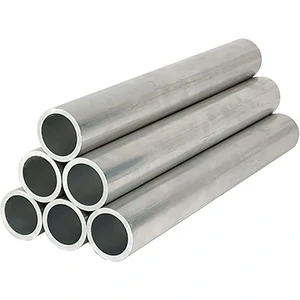 7075 Aluminum Tube
7075 Aluminum Tube Processing:extrusion, drawing (drawn tube), seamless (seamless tube)
Temper: round tube, square tube, rectangular tube, elliptical tube, streamlined tube,semi-circular tube
Temper:O, T6, T651, T6511, T73, T7351
Standards:EN 754, EN 755, ASTM B210, ASTM B221, AMS-WW-T-700/7, AMS-QQ-A-200/11
Applications:Aerospace tubing, race car frames, bike tubes, tent poles
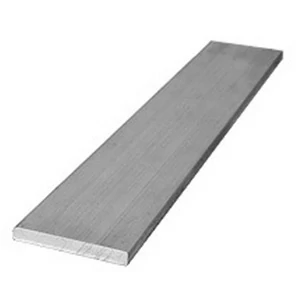 7075 Aluminum FlatBar
7075 Aluminum FlatBar Processing:Extruded, Cold finish, Extruded, Cold finish
Temper:T6, T651, T6511, T73, T7351
Standards:EN 754, EN 755, ASTM B221, AMS-QQ-A-200/11, AMS 4154, AMS 4167, AMS 4169
Applications:Structural connectors, precision parts, high-strength brackets
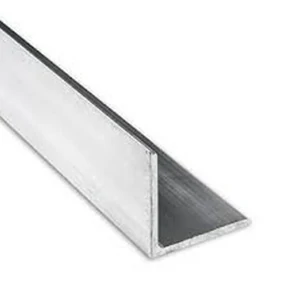 7075 Angle Aluminum
7075 Angle Aluminum Types:Equal Aluminum Angle, Unequal Aluminum Angle
Temper:T6, T651, T6511, T73, T7351
Standards:EN 755, ASTM B221, AMS-QQ-A-200/11, AMS 4154, AMS 4167, AMS 4169
Applications:High-strength frame connections, aerospace supports
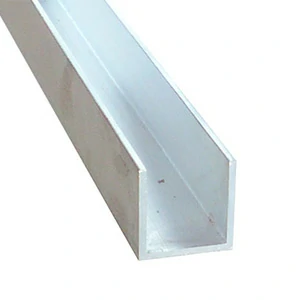 7075 AluminumProfile
7075 AluminumProfile Types:U Channel, T Bar, I Beam, Round Extrusion, Box Profile, Custom Profile
Temper:T6, T651, T6511, T73, T7351
Standards:EN 755, ASTM B221, AMS-QQ-A-200/11, AMS 4154, AMS 4167, AMS 4169
Applications:Aircraft structural components, race car design profiles, premium sportsequipment
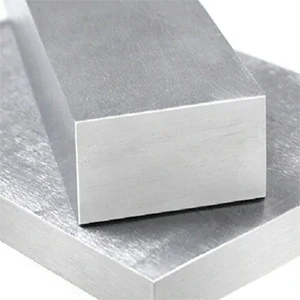 7075 ForgedAluminum
7075 ForgedAluminum MProcessing:Die Forged, Open Die Forged
Types:Forged Block, Forged Plate, Forged Tube, Forged Ring, Forged Disc, Forged Flange,Complex Closed-Die Forging
Temper:T6, T652, T73, T7352
Standards:ASTM B247, AMS 4126, AMS 4132, AMS 4149
Applications: Aerospace structures, critical systems, automotive suspensions
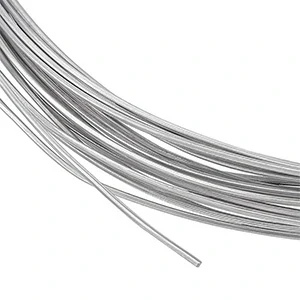 7075 Aluminum Wire
7075 Aluminum Wire Processing:Cold Drawn, Hot Rolled
Temper:T6, T651, T73, T7351
Standards:ASTM B211, AMS-QQ-A-250/9, AMS 4122
Applications:Rivets, fasteners, aerospace connectors, racing-grade bolts
As a trusted supplier of 7075 aluminum alloy, Chalco offers a wide variety of specifications andtempers to meet your application needs. For detailed specs or up-to-date pricing, feel free tocontact our expert team today!
Are You Looking for an Aluminum Supplier?
If you need a professional aluminum supplier to provide you with high-quality,cost-effective aluminum, we will be your best choice.
Tempers of 7075 Aluminum
As a professional aluminum supplier, Chalco understands the critical role of 7075 aluminum alloyacross industries.
To meet various application needs, we offer multiple tempers of 7075 aluminum, including 7075-O,7075-T6, 7075-T651, 7075-T73, 7075-T76, 7075-T7351, and more. Whether you require high strength,excellent corrosion resistance, or specific machinability, we can provide the right material.
7075-O (Annealed)
A soft, untreated aluminum with maximum ductility and minimum strength.
- Tensile Strength: ~276 MPa
- Yield Strength: ~145 MPa
- Elongation: 9–10%
7075-T6 (Solution Heat-Treated + Artificial Aging)
Maximizes strength through heat treatment and artificial aging.
- Tensile Strength: ~510–538 MPa
- Yield Strength: ~434–476 MPa
- Elongation: 5–8%
7075-T651 (Stress-Relieved T6)
Same as T6, but stretched to relieve internal stress.
- Tensile Strength: ~462–538 MPa
- Yield Strength: ~372–462 MPa
- Elongation: 3–9%
7075-T73 (Over-Aged for Corrosion Resistance)
Undergoes over-aging to improve stress corrosion resistance with a slight trade-off in strength.
- Tensile Strength: ~505 MPa
- Yield Strength: ~435 MPa
- Elongation: ~13%
7075-T7351 (Stretched Over-Aged)
Based on T73, includes stretching to relieve stress. Offers excellent corrosion resistance anddimensional stability.
7075-T76 (High-Temperature Aging)
Tempered at higher temperatures to balance strength and stress corrosion resistance.
7075-T7651 (Stress-Relieved High-Temp Aging)
Stretched version of T76, delivering high strength, SCC resistance, and shape stability.
7075 T73510
Solution heat-treated, stress-relieved by stretching, and over-aged. Offers optimal stresscorrosion resistance without straightening.
7075 T73511
Same as T73510, but includes light straightening to enhance flatness and corrosion resistance.
7075 T76510
Solution-treated and stretched, then high-temperature aged to resist exfoliation corrosion. Nostraightening.
7075 T76511
Same as T76510, but with light straightening. Provides excellent exfoliation corrosionresistance and dimensional precision.
With abundant inventory and strong production capacity, Chalco is ready to respond quickly toyour project needs.
If you're interested in our 7075 aluminum alloy products or have any questions, please don’thesitate to contact us.
Our expert team is here to assist you — we look forward to working with you.
Instant QuoteChemical Composition of 7075 Aluminum
| Element | Content (%) |
| Zn | 5.1–6.1 |
| Mg | 2.1–2.9 |
| Cu | 1.2–2.0 |
| Cr | 0.18–0.28 |
| Fe | ≤0.50 |
| Si | ≤0.40 |
| Mn | ≤0.30 |
| Ti | ≤0.20 |
| Other Impurities | ≤0.05 |
| Total Impurities | ≤0.15 |
| Al | Balance |
7075 aluminum is strengthened primarily by zinc, along with copper and magnesium, giving thealloy exceptional strength and hardness. This unique composition makes it ideal for aerospaceand military applications where material performance is critical.
Physical Properties of 7075 Aluminum
| Property | value |
| Density | 0.1 lb/in³(2.81 g/cm³) |
| Elastic Modulus | 10, 400 ksi(71.7 GPa) |
| Shear Modulus | 3, 800–3, 900 ksi(26.2–26.9 GPa) |
| Poisson’s Ratio | 0.32 |
| Thermal Conductivity | 900–1, 200 BTU-in/hr-ft²-°F(130–173 W/m·K) |
| Electrical Conductivity | 33% IACS |
| Specific Heat Capacity | 0.229 BTU/lb-°F(0.96 J/g·°C) |
| Melting Point | 890–1, 180 °F(477–638 °C) |
Mechanical Properties of 7075 Aluminum
| Temper | Tensile Strength (ksi) | Yield Strength (ksi) | Fatigue Strength (ksi) | Shear Strength (ksi) | Hardness (Rockwell B) | Hardness (Brinell) | Elongation (%) |
| 7075-O | ≤40 | ≤21 | 18 | 22 | 17 | 60 | ≥10 |
| 7075-T6 | 83 | 73 | 23 | 48 | 87 | 150 | 11 |
| 7075-T651 | 80 | 67 | 23 | 48 | 87 | 150 | 8.2 |
| 7075-T73 | 72.2 | 63.1 | 20.8 | 42.5 | 82 | 135 | 7.1 |
| 7075-T7351 | 73.2 | 63.1 | 21.8 | 43.5 | 82 | 135 | 7.5 |
Machinability of 7075 Aluminum
7075 aluminum alloy is widely known for its high strength and good machinability, though it haslimitations in weldability and corrosion resistance.
Machinability
Rated as "B" by the Aluminum Association, 7075 aluminum offers excellent formability, cuttingperformance, and precision machining adaptability. Its machinability varies depending on thetemper:
- O Temper: Good plasticity and easy to machine, but low strength. Suitable for deep drawingor complex forming, followed by heat treatment for strengthening.
- T6 / T651 Temper: High hardness leads to faster tool wear but offers superior dimensionalstability—ideal for precision parts.
- T73 / T76 Temper: Slightly lower strength, improved machinability over T6, preferred forcorrosion-critical applications.
Weldability
Welding performance of 7075 aluminum is poor. It is prone to hot cracking, and the weld zoneoften loses strength and corrosion resistance. Therefore, standard welding is generally notrecommended.
In urgent cases, TIG welding with 5356 filler wire and preheating to 150°C may help reducecracking. For better reliability, mechanical joining methods such as riveting are preferred tomaintain structural integrity.
Formability
At room temperature, 7075 aluminum has low formability due to its high strength and lowductility, making it prone to cracking and stress corrosion risks.
- O Temper: Offers better plasticity (elongation 15–17%), suitable for cold bending, stamping,and complex forming, but requires post-aging to restore strength.
- T6 / T73 Tempers: Difficult to cold-form; hot forming (300–400°C) such as die forging iscommonly used to improve plasticity, with springback and anisotropy carefully managed.
- A common practice: "Pre-form in O temper + age harden" (e.g., hydroforming aircraft fueltank shells) to balance formability and final strength.
Corrosion Resistance
Although 7075 aluminum excels in strength, its corrosion resistance is lower than standardaluminum alloys, especially in humid or chloride-containing environments, where stress corrosioncracking (SCC) can occur.
This vulnerability is mainly due to its 1.2–2.0% copper content, which enhances hardness butintensifies galvanic activity at grain boundaries.
To mitigate this:
- T73 / T76 over-aging is used to reduce corrosion sensitivity.
- Protective measures include hard anodizing (20–25μm) and cladding with pure aluminum,especially in aerospace and low-temperature environments.
Comparison: 7075 Aluminum vs. Other Alloys
7075 aluminum is a top choice for high-strength applications, but depending on your needs, otheralloys might be worth considering. Here’s how 7075 compares with some commonly usedalternatives:
 7075 vs. 2024
7075 vs. 20247075 aluminum offers higher strength (T6 tensile strength 570 MPa), but itscorrosion resistance is weaker than that of 2024, which is better suited forfatigue-sensitive applications such as aircraft skins. Both alloys have poorweldability and are more appropriate for riveted or bonded structures.
 7075 vs. 6061
7075 vs. 60617075 is approximately 80% stronger than 6061, but it shows clear disadvantagesin corrosion resistance and machinability. 6061 is lower in cost and easier toweld, making it ideal for general-purpose parts such as construction supports,while 7075 is preferred for high-load, non-welded components like racingsuspension systems.
 7075 vs 7050
7075 vs 70507050 is an improved version of 7075, with reduced zinc and added zirconium toenhance stress corrosion resistance. In T74 temper, it requires no cladding and,though slightly lower in strength, it is better suited for thick militaryplates, such as fighter aircraft fuselages.
 7075 vs 7005
7075 vs 70057005 contains less zinc and offers excellent weldability, retaining up to 70% ofits strength after welding. It sacrifices some strength for better fabricationadaptability and is commonly used in bicycle frames and other welded, light-loadstructures.
Chalco can provide you the most comprehensive inventory of aluminum products and can alsosupply you customized products. Precise quotation will be provided within 24 hours.
Get aquote

